Whether you run a business or work in the marketing industry, understanding the key terms in Google AdWords is crucial for your success. The way you select and set your keywords can make the difference between high costs and a high conversion rate. In this guide, you will explore the differences between "broad match," "phrase match," and "exact match."
Key Takeaways
- Understand the significance of the different keyword match types
- Use "exact match" to run targeted ads and lower cost-per-click
- Experiment with different match types to achieve optimal results
Step-by-Step Guide
First, let’s look at the Keywords tab. In this area, you’ll see the keywords for your ads. Here you have the opportunity to modify them according to your needs.
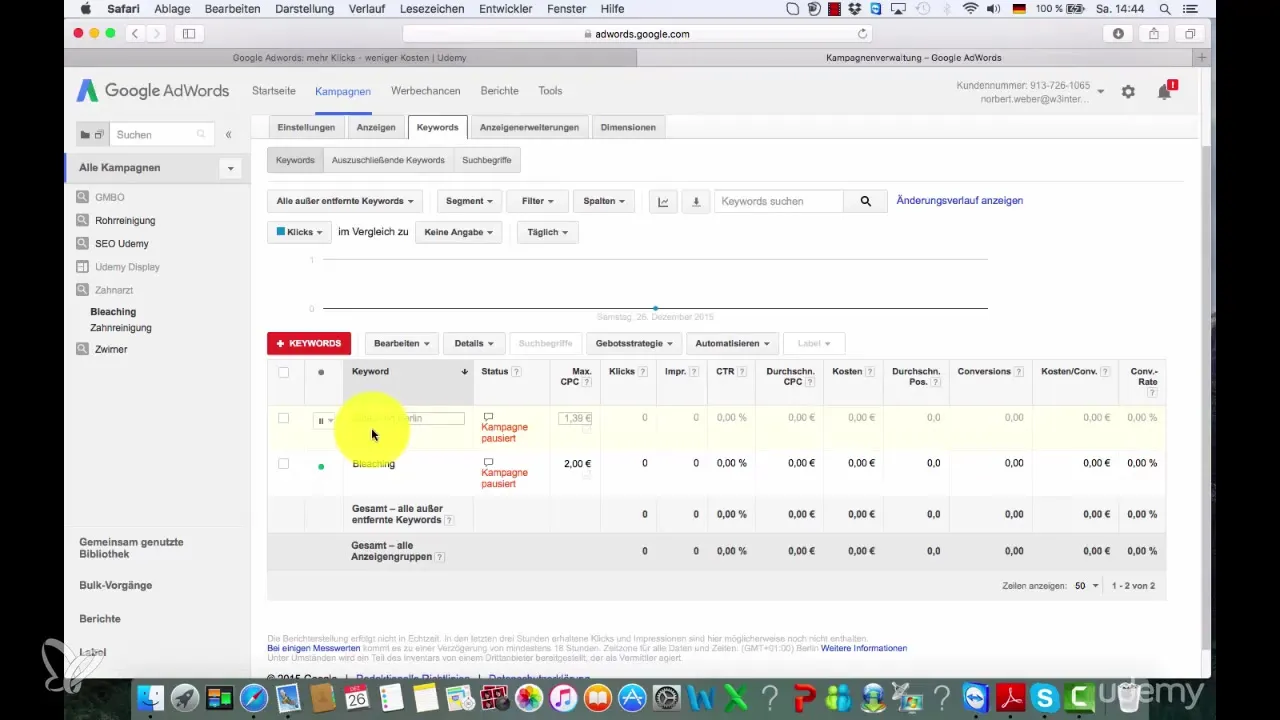
You may have originally planned to use the keyword "Bleaching." However, considering the campaign's performance, it makes sense to make adjustments to focus on more specific search queries. An ad group on "Bleaching Berlin" shows us that this campaign may be improved in two ways: First, the keyword does not precisely match a geographic location, and second, optimal bidding strategies were not used.
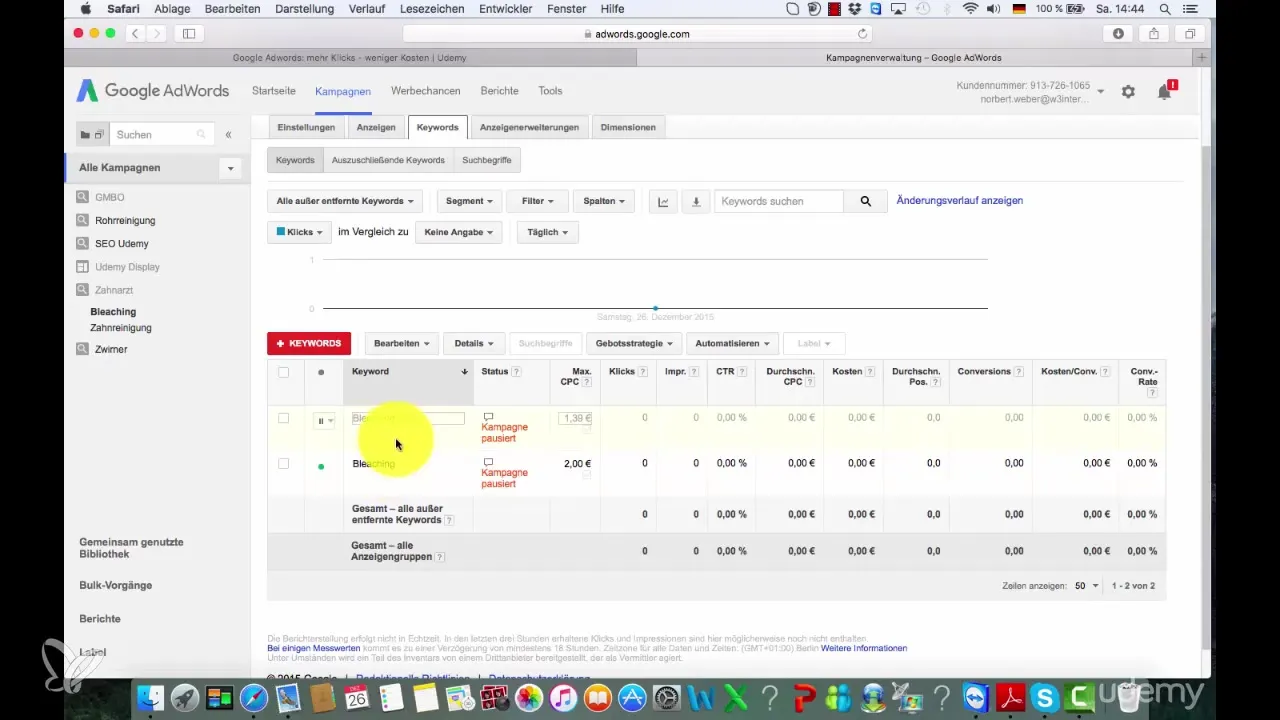
Each keyword has various settings that you can adjust. Simply click on the relevant keyword and accept the changes. You will then see new fields for adjustment. In this area, you will find three main options for match types: "broad match," "exact match," and "phrase match."
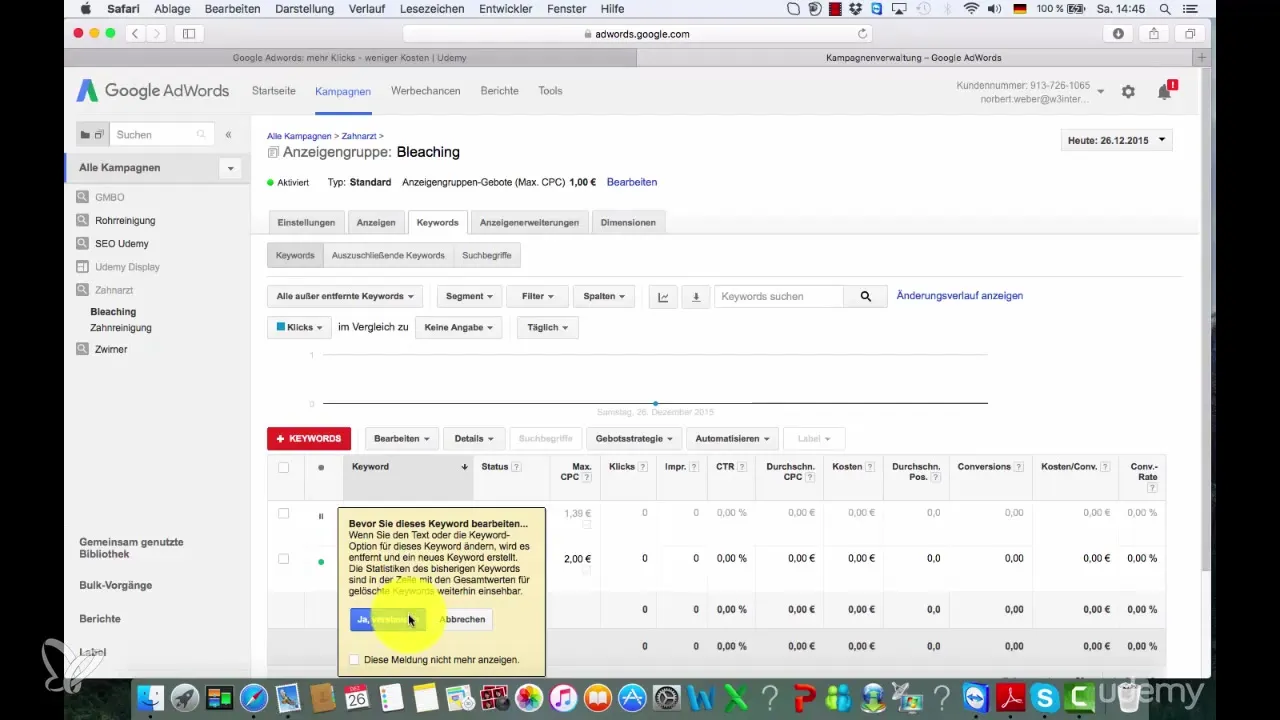
With "broad match," your ad will also be shown when users search for other related terms. For example, if someone searches for "white teeth" or "teeth cleaning"—your ad could still appear. This option often leads to many clicks, which may not necessarily result in conversions, as user interest might not align.
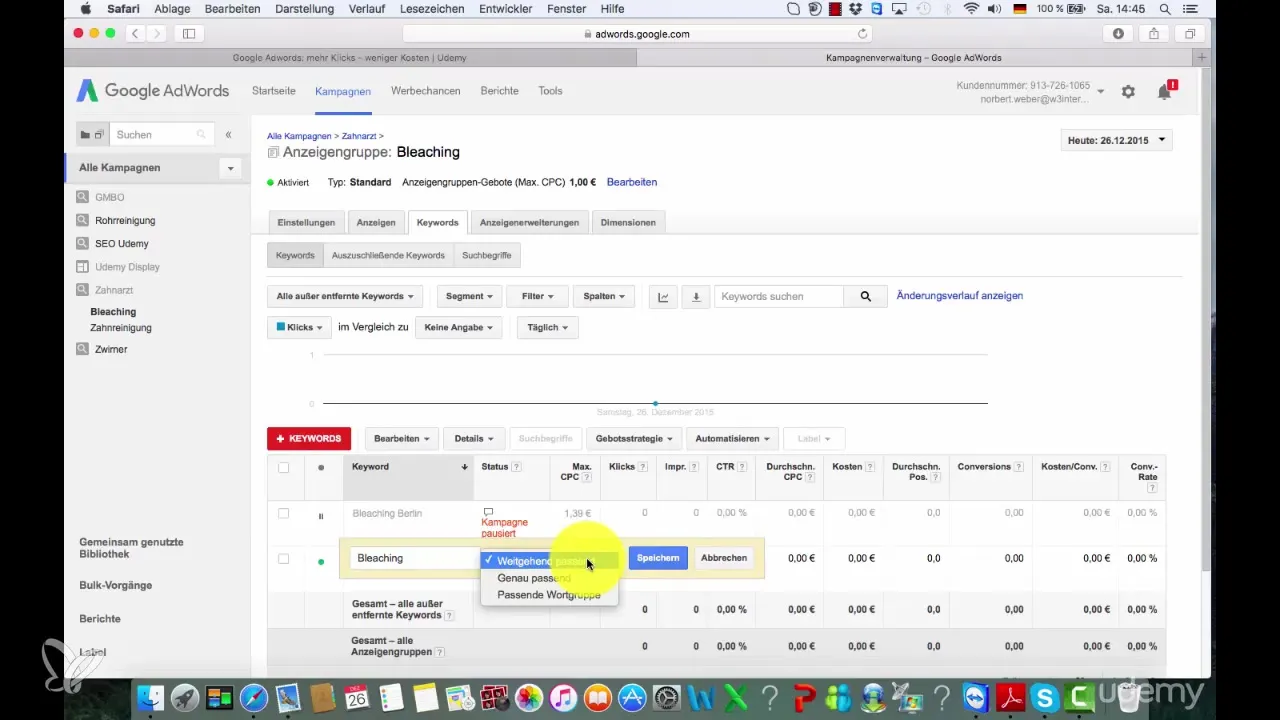
Now we come to "phrase match." This keyword is treated more flexibly. This means that both "Bleaching Berlin" and "Berlin Bleaching" or "Bleaching in Berlin" are counted. This variant ensures that your ad is displayed more frequently, but is less precise than "exact match."
The key advantage of "exact match" is that your ad only appears when users search exactly for your keyword. For example, with "Bleaching Berlin," that exact phrase must be entered; variations such as "Berlin Bleaching" are not considered. This takes into account the high purchase intent of your potential customer.
When you use exact match, you will find that click costs are generally lower. This is because you are bidding for targeted searches, and the quality score of your ad increases as it precisely fulfills the search queries. Ideally, your ad points directly to a relevant landing page.
Another point to keep in mind are the brackets or quotation marks you see when entering keywords. Square brackets indicate that the keyword is an exact match. Quotation marks indicate that it is a phrase match. If these elements are missing, the keyword is broad match.
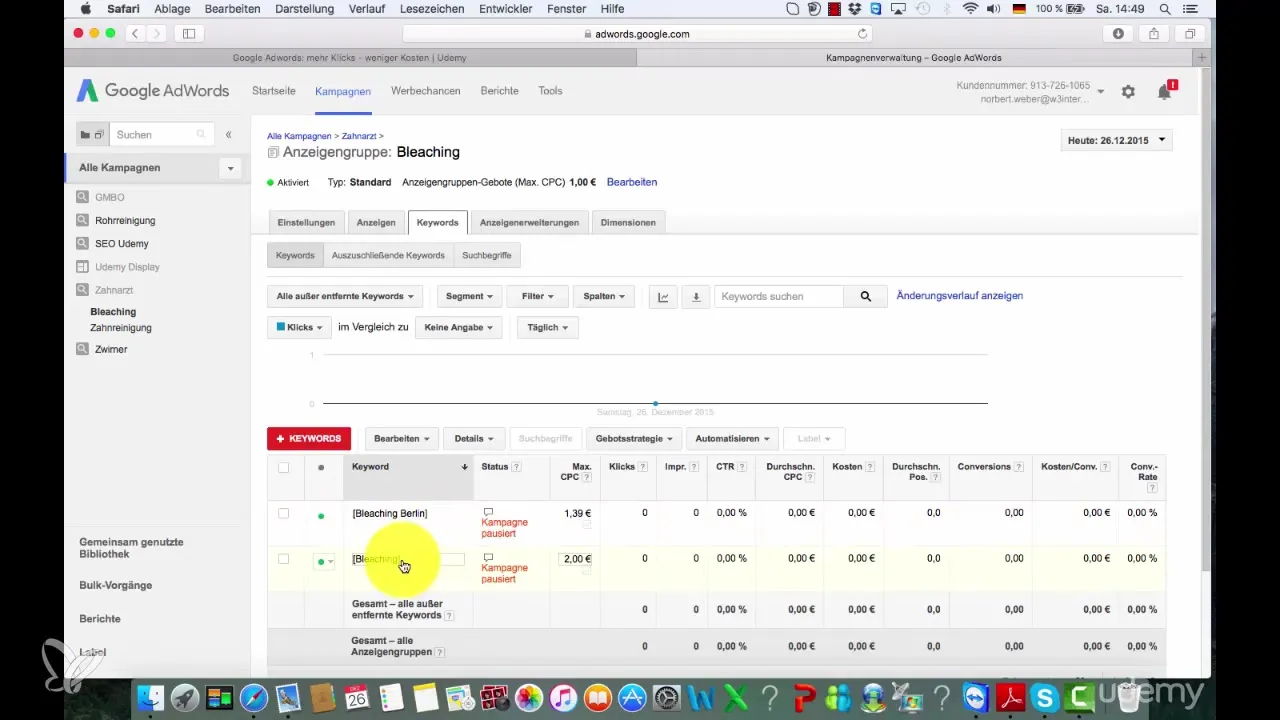
In summary, you should summarize the options. With "broad match," ads are shown for semantically related queries, while "exact match" only considers exact matches. With "phrase match," you have a middle ground that allows for more variations but is not as precise as exact match.
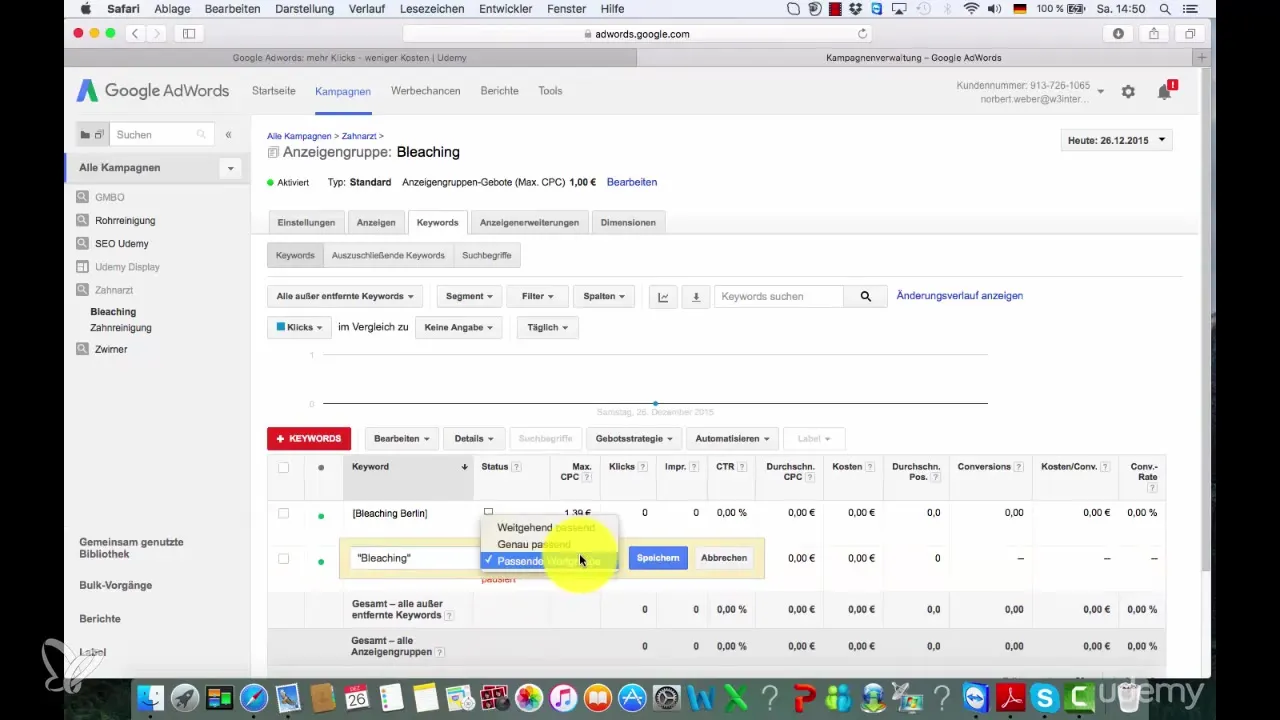
Here is an overview of your options: If you choose "broad match," you can reach a wider audience but may get fewer qualified leads. "Exact match" is the most precise way to reach highly interested customers but may have potentially lower click volumes. Experiment with the different match types and observe how your ad costs change to find the optimal setting for your business.
Conclusion – Google AdWords: Keywords for Successful Ad Groups
In this guide, you have learned about the various keyword match types in Google AdWords. You should now be able to choose the terms that best suit your target audience. Remember to test different settings to achieve the best results.
Frequently Asked Questions
What does "broad match" mean?"Broad match" displays your ad for related search queries even when the exact keyword is not entered.
How does "phrase match" work?"Phrase match" shows your ad when the search query includes variations of the keyword, such as "Bleaching Berlin" or "Bleaching in Berlin."
What are the benefits of "exact match"?"Exact match" ensures that your ad only appears for exact matches, increasing quality and user interest.
How can I lower cost-per-click?By using exact match, you can run more targeted ads and potentially lower click costs.
What should the landing page be like?The landing page should link directly to relevant content to provide users with a seamless experience and maximize conversions.


